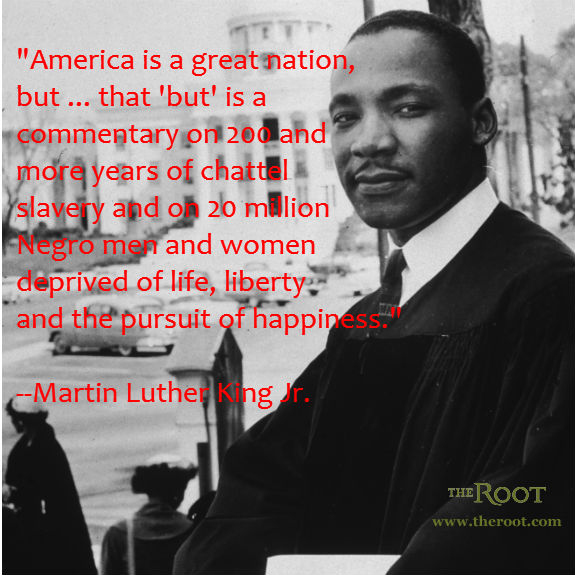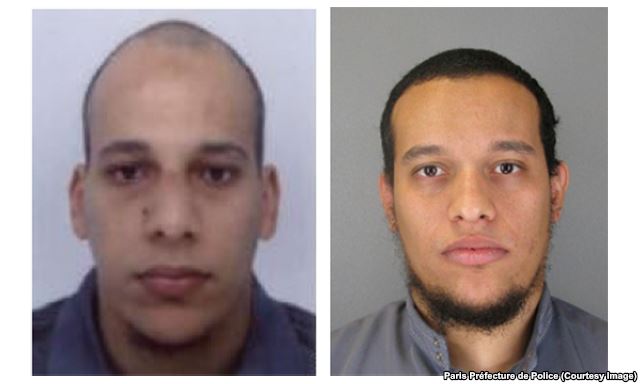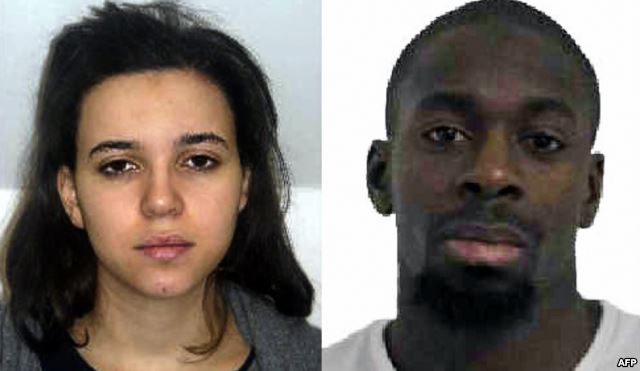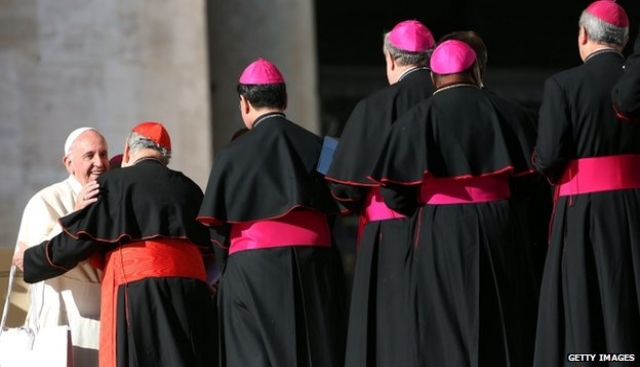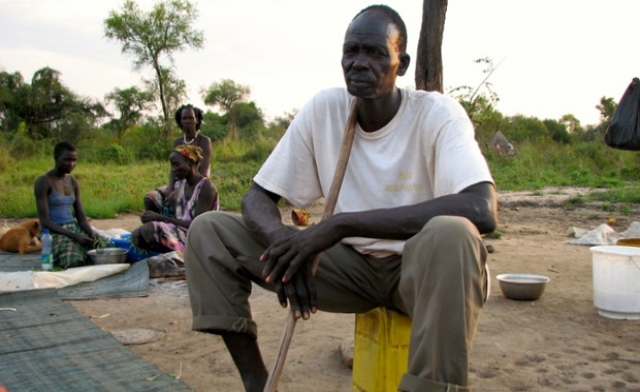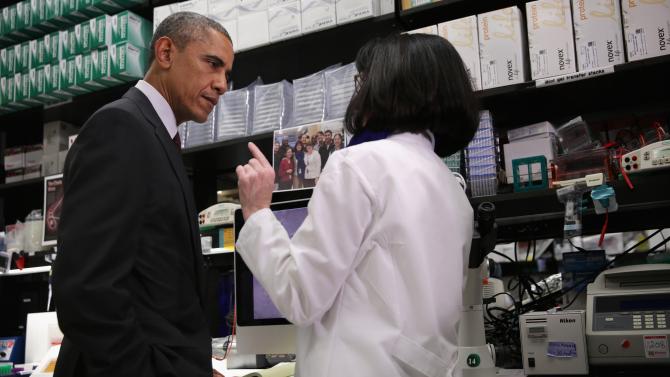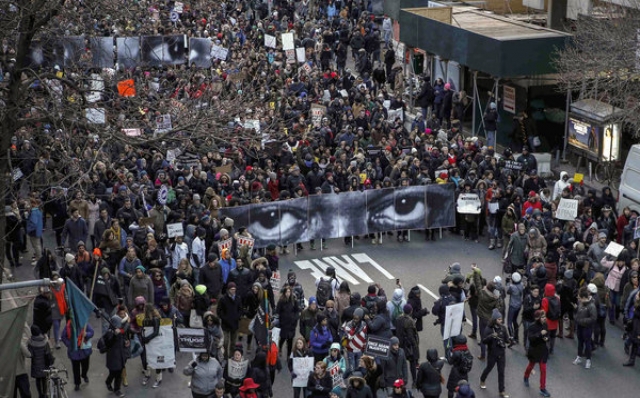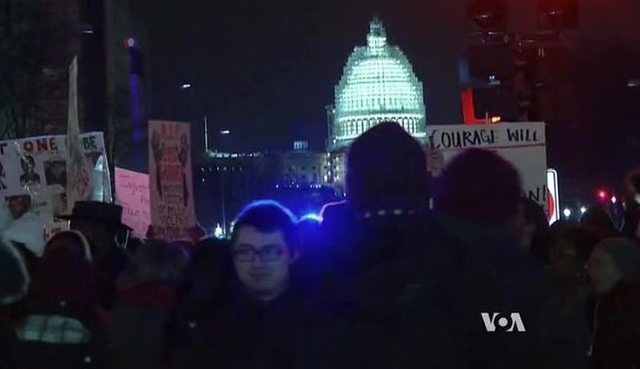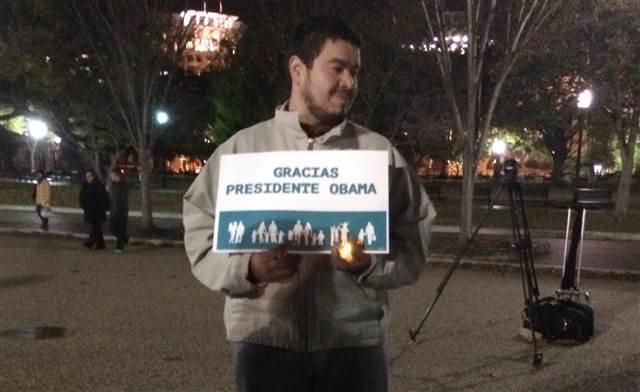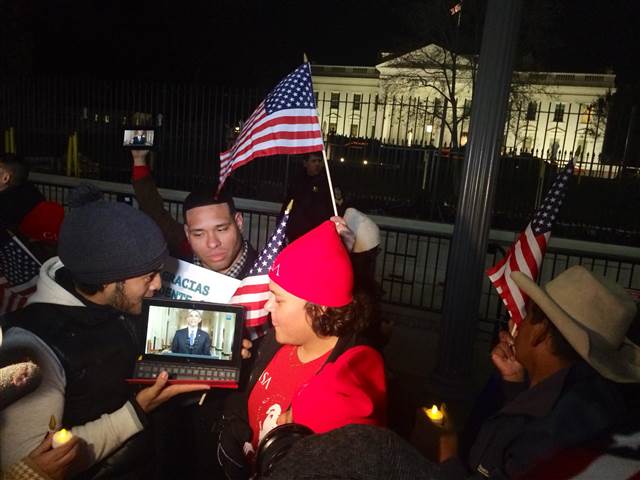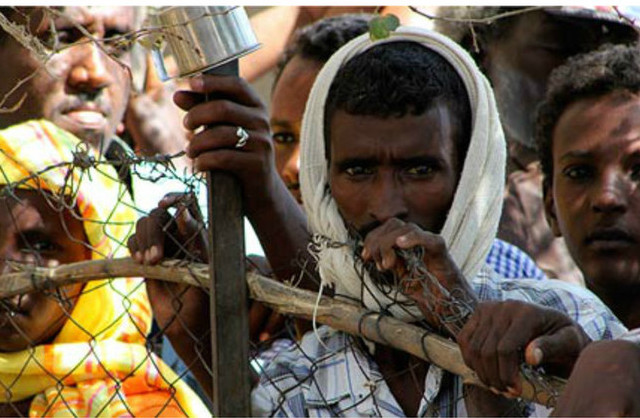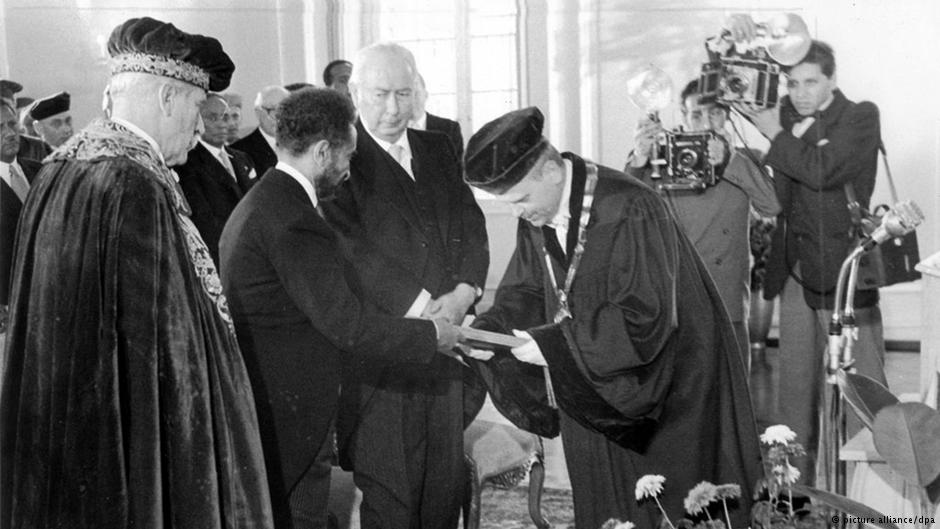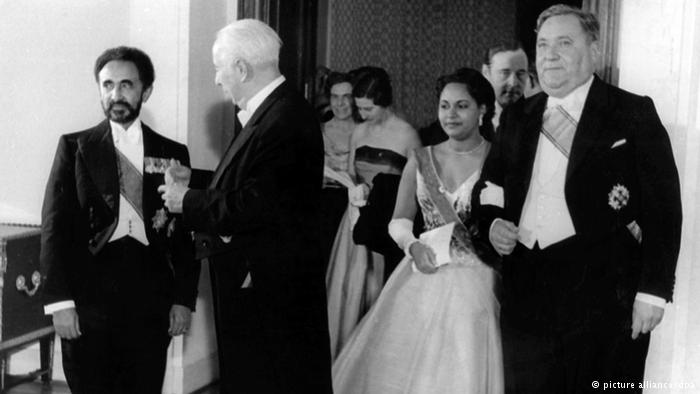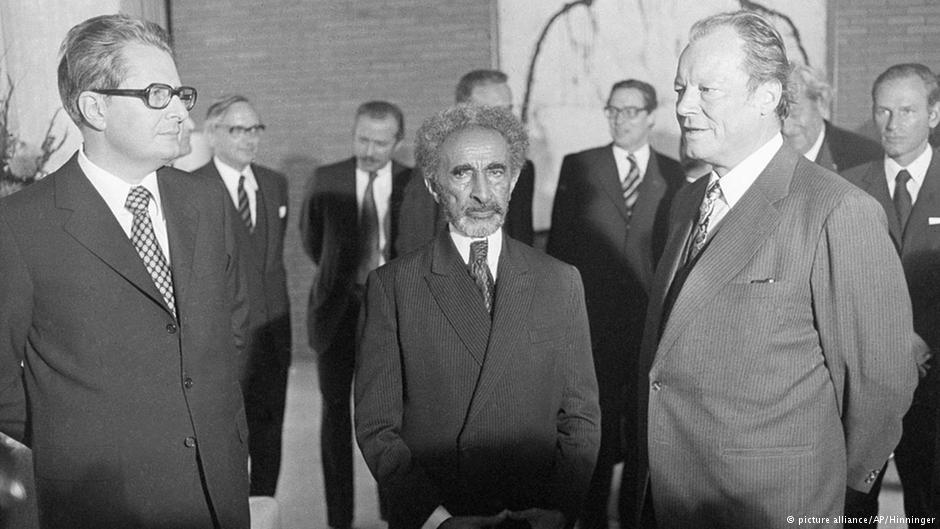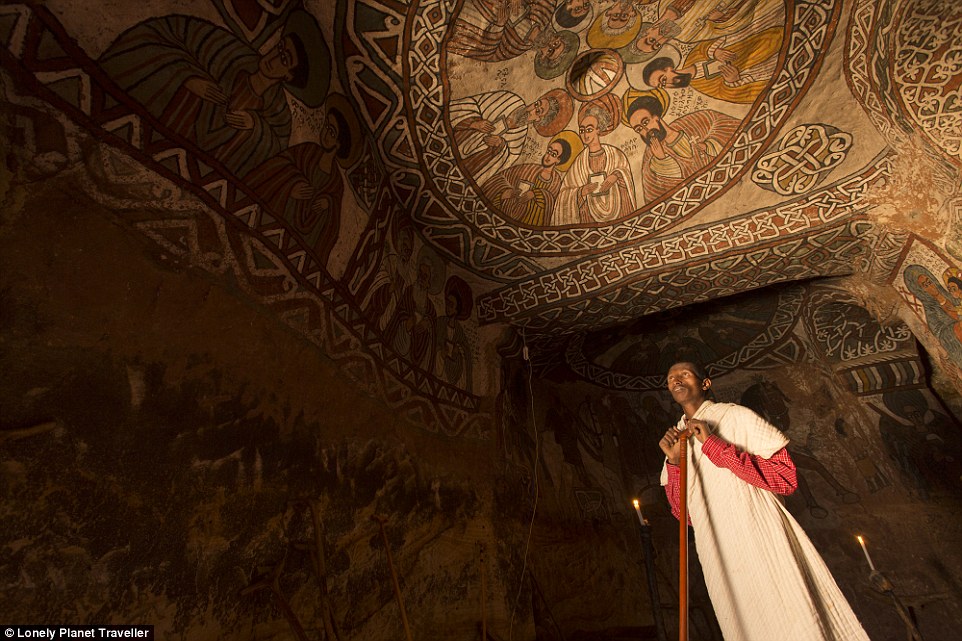BBC News
15 January 2015
Two African newspapers have apologised for publishing Charlie Hebdo’s cover depicting the Prophet Muhammad, after an outcry from Muslim readers.
Kenya’s The Star and South Africa’s The Citizen said they regretted any offence caused to Muslims.
Kenya’s media regulator has summoned The Star’s owner after accusing it of breaching decency. It did not single out the cartoon.
In Senegal, the government has banned Charlie Hebdo’s distribution.
A second Kenyan newspaper, Business Daily, has also published the French satirical magazine’s cover.
In its Thursday morning edition, the Star said many Muslim readers had complained over a “small reproduction” of Charlie Hebdo’s cover on Wednesday.
Apologising, the paper, Kenya’s third biggest, said it “sincerely regrets any offence and pain caused by the picture”.

Apology published by Kenya’s The Star on 15 January 2015
Read more at BBC News »
—
Buyers Rush to Snag New ‘Charlie Hebdo’ Issue (VOA News)
By Al Pessin, Lisa Bryant
January 14, 2015
PARIS— There were long lines at Paris newsstands that had copies of the French satirical magazine Charlie Hebdo, which lost eight staff members in a militant Islamist attack on its offices last week.
The latest edition, published Wednesday, features a caricature of a weeping Muslim Prophet Muhammed holding a sign that reads “I am Charlie” under a headline reading “All is forgiven.”
All across the city, copies of the magazine sold out within minutes.
One kiosk near the Champs Elysees, open at 6 a.m. (0500 UTC), was sold out by 6:05. Another, near Saint-Lazar, reported fisticuffs among customers.
“Distributing Charlie Hebdo, it warms my heart because we say to ourselves that he is still here, he’s never left,” said Jean-Baptiste Saidi, a van driver delivering copies well before dawn on Wednesday.
Additional copies ordered
The printers promised an initial run 3 million copies, compared to their normal print run of about 60,000, but they’re only delivering half a million a day. According to a spokesman for Charlie Hebdo’s distributor, high demand Wednesday, prompted an additional 2 million copy print order.
“It’s essential to buy it, to support them. And it’s of interest to me what’s in the paper,” a retired psychotherapist told VOA.
“It’s a great gesture, but we expect much more. Most important is that Charlie continues to exist,” said Philippe, a train driver.
David Sullo, standing at the end of a queue of two dozen people at a kiosk in central Paris, said, “I’ve never bought it before, it’s not quite my political stripes, but it’s important for me to buy it today and support freedom of expression.”
Emilienne, an administrative secretary, had the future in mind as she stood in line to buy the magazine.
“To keep it for my grandchildren,” she explained. “One day I will be able to say to them ‘See, this happened when you were young. I tell you so that it never happens again.’ ”
Inside the station, as travelers poured off the morning trains, they found signs telling them “Charlie Hebdo is sold out.”
Bookstore manager Magalie saved one copy for herself.
“We opened at 6 a.m. There were already people in line outside. In less than an hour, all 125 copies we had were gone,” she said.
Simon, a kiosk owner in Paris, said he wrote down names of at least 100 people who are expected to line up outside his kiosk early on Thursday to purchase what some are calling the “survivors issue.”
All proceeds from the sale of this week’s edition will go directly to Charlie Hebdo, after distributors decided to waive their fee. The cover price was three euros ($4).
At a news briefing on Tuesday, U.S. State Department spokeswoman Marie Harf said: “We absolutely support the right of Charlie Hebdo to publish things like this. Again, that’s what happens in a democracy. Period.”
History of lampooning religions
Charlie Hebdo had angered Muslims in the past by printing cartoons lampooning the prophet and Islam.
The latest issue of Charlie Hebdo has maintained the intentionally offensive tone that made the newspaper famous in France, although global news organizations have differed in their decisions to run images of the cover.
For Wednesday’s issue, staff members defiantly put a caricature of the Prophet Muhammed on the front page. Inside, they published some of the last editorial cartoons drawn by their colleagues who were killed.
The new issue has already caused controversy within the Islamic world, raising fears of a repeat of the violent 2006 protests over the cartoons of Mohammed printed in Danish daily Jyllands-Posten.
The drawings “stir up hatred” and “do not serve the peaceful coexistence between peoples and hinders the integration of Muslims into European and Western societies,” the Cairo-based Al-Azhar’s Islamic research center said in a statement, reported by the French news agency AFP.
In Turkey, police guarded the offices of secular newspaper Cumhuriyet Wednesday, after it included a four-page pullout section featuring some of the cartoons and editorials featured in the new Charlie Hebdo edition.
According to the Turkish Hurriyet Daily News, police on Wednesday raided the Cumhuriyet printing press as it prepared to release the excerpts. Authorities allowed distribution of an abbreviated edition after verifying no cartoons of Mohammad were included.
Iran reaction
Iran Foreign Minister Mohammad Jawad Zarif said on Wednesday serious dialogue with the West would be easier if it respected Muslim sensitivities, ruffled by the latest Charlie Hebdo cartoons, as he began nuclear talks with U.S. Secretary of State John Kerry in Geneva.
In explaining why Iranians are dismayed by the cover of magazine’s latest issue, Zarif said, “We believe that sanctities need to be respected and unless we learn to respect one another, it will be very difficult.
“In a world of different views and differing cultures and civilizations we won’t be able to engage in a serious dialogue if we start disrespecting each other’s values and sanctities. I think we would have a much safer, much more prudent world if we were to engage in serious dialogues, serious debate about our differences and then we will find out that what binds us together is far greater than what divides us,” he said shortly before meeting with Kerry.
“We are now faced with very serious problems of extremism, not only in the Middle East but unfortunately in Europe. You’ve seen demonstrations here in Europe which are extremely dangerous and we need to be able to deal with that,” Zarif added.
Conviction vs fundamentalism
Editor-in-Chief Gerard Biard said the magazine has not only spoofed Islam, but all kinds of religious fundamentalism.
Biard said the newspaper respects personal religious convictions, but not religion that becomes politicized. “That’s what revolts us,” he said, “that’s what we’re mocking.”
Turkish journalist Defne Gursoy is a regular Charlie Hebdo reader. She said she loves what she calls its “out of limits humor.” And Gursoy approves of the new Mohammed cover.
“It’s probably the best cover to do … continuing this anarchic kind of disturbance of everything that’s taboo. There’s no other way out. You can’t be complacent,” Gursoy said.
But the cover has angered some Muslims, both overseas and in France.
M’hammed Henniche, secretary general of UAM93, a Muslim association in the Saint Denis region outside Paris, said leaders like himself have told Muslims to stay calm and not to react.
Henniche described the Muhammed cartoons as an irresponsible act by Charlie Hebdo, given the tense national climate. It’s not considered free expression in France to mock the Holocaust, he said, nor should it be to mock the Muslim prophet.
People looking to buy the magazine Wednesday didn’t necessarily agree with Charlie Hebdo’s views, but said buying this issue was a form of protest.
“A magazine like Charlie Hebdo belongs to a tradition of laughter, derision and seeing the truth in things,” noted Christian Delporte, a history professor and expert on political cartoons at the University of Versailles.
“Everyone also recognizes that these cartoonists are deeply attached to freedom,” Delporte added.
Vow to press on
And the attack survivors have made clear they will continue with their brand of satire, whose overriding message of freedom of expression is close to the hearts of millions of French people.
“In the end, it’s a matter of tolerance. If you don’t want to read Charlie Hebdo, don’t buy it,” Delporte said.
If Wednesday was any indication, millions of people will be buying it, at least for a while.
Pamela Dockins contributed to this report from Geneva. Some information for this report came from Reuters, AFP and AP.
Video:French Magazine Charlie Hebdo’s New Prophet Muhammad Cartoon Reignites Debate
—
Related:
In France Citizens Flock to Buy Charlie Hebdo in Support of Free Speech
French Police Kill 3 Gunmen to End Hostage Crises
Join the conversation on Twitter and Facebook.

